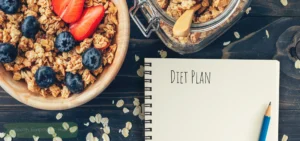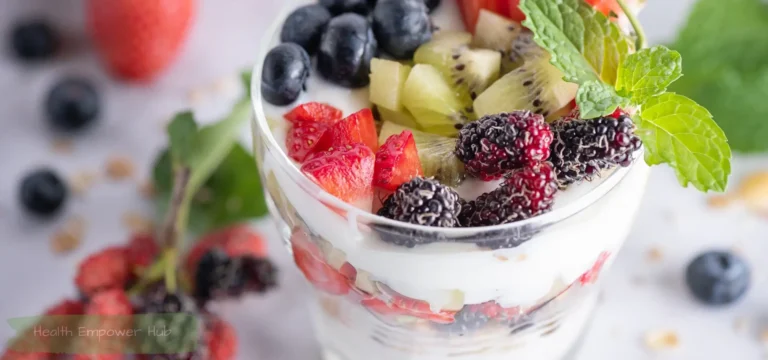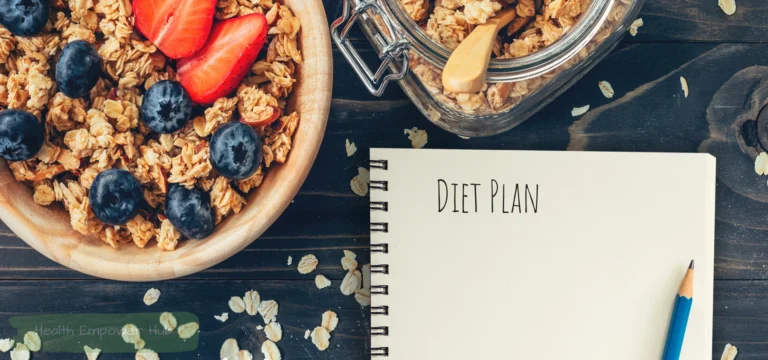The majority of individuals have a misconception that being on a healthy colon diet just requires fixing a special meal once in a while or even putting the body on some sort of starving diet. However, the reality of the matter is that a robust colon is maintained based on a regular intake of healthy foods that promote the health of one’s gastrointestinal tract. For this post, we will discuss the correct approach to take a colon diet, important elements and recommendations to increase gut and overall wellbeing.
What is a Healthy Colon Diet?
A colon diet is more of a lifestyle than a special diet for the simple reason that foods that are known to enhance overall health and those that are good for the colon are not Muchof a change from general nutrition. Obviously, being an element of the large intestine, your colon is vital for nutrient absorption as well as the digestion of waste. Inhabitancy, you may reduce the prospects of digestion and amplify the colon performance by feeding your organism with appropriate nutritive substances.
Benefits of a Healthy Colon Diet
The benefits of adopting a healthy colon diet extend beyond digestion. By consuming foods that promote colon health, you can experience:
-
Improved Digestion and Regularity:
Eating well also helps food to go round within the digestive system hence leading to normal bowel movement. Considering the right kind of foods to take, fiber is vital and hence should be provided through tomarinesh, fruits, and whole-grain products to support the digestive system against constipation.
-
Enhanced Nutrient Absorption:
They said that when the colon is healthy, it is easier for your body to absorb the nutrient from your diet. What this means is that maximum value is obtained from Vitamin and essential minerals with enhanced vigor of the body.
-
Strengthened Immune Function:
This is perhaps shockinging news to many people but it should not come as a surprise that 70 percent of your immune system is held in your digestive tract! If you feed your colon with probiotics then definitely your body’s immune system will be strong and chances of getting infection will be minimal because you are taking yogurt, kefir and fermented foods.
-
Reduced Risk of Colon-Related Diseases:
It is understood that the Fiber rich and processed productive foods have drastic effects in reducing the chances of colon cancer and other digestive problems. Hence by keeping your colon healthy you are paying for the future health and trying to avoid any disease.
-
Weight Management and Energy Levels:
A balanced colon-friendly diet ensures a bariatric.Comparator is satisfied and least likely to crave during the day. If you feed your body right, you will not lack energy in the middle of the day or feel lethargic while doing something important.
A balanced diet that does not irritate the colon can also be of importance in maintaining ones’ weight dramatically besides ensuring that daily energy levels are sharp.
For a context of a colon diet, however, it is important to know factor or components that have a direct bearing on colon. Throughout the succeeding segments of this article, the writer will discuss the important facets of a colon-healthy diet plan and offer realistic suggestions on how these principles can be effectively implemented in one’s overall food intake regimen. Tune in to find out more practical information; learn about the sample colon cleanse diet that can serve as an example of how to approach this process.
Key Elements of a Colon-Healthy Diet
In a nutshell, it is important to note that going for colon healthy diet does not necessarily mean going for a colon cleanse diet and taking extraordinary measures of what one has to eat or exclude from their meals. It is all about how one can manage to include useful components and features in the meals they are taking so as to enable their digestion and health. Take time to understand these aspects, and then see how to apply changes to the diet for the health of the colon.
Fiber-Rich Foods: The Foundation of Colon Health
One of the cornerstone elements of a colon-healthy diet is fiber. Fiber plays a crucial role in maintaining regular bowel movements and supporting digestive health. Aim to include a variety of fiber-rich foods in your diet, such as:
- Whole Grains: Opt for whole grain bread, brown rice, quinoa, and oats.
- Fruits and Vegetables: Choose a colorful array of fruits and veggies, including apples, berries, broccoli, and leafy greens.
- Legumes: Incorporate beans, lentils, and chickpeas into soups, salads, and main dishes.
By including these fiber sources in your meals, you can promote optimal colon function and reduce the risk of constipation and other digestive issues.
Probiotics and Prebiotics: Supporting Gut Health
Another factor that must be included in the diet to maintain a healthy colon is the incorporation of probiotics and prebiotics into the diet. Probiotic means good bacteria that support the dig responsibility of gut bacteria while prebiotic means the undigested food that feeds the good bacteria. Include the following foods in your diet to support gut health:Include the following foods in your diet to support gut health:
- Yogurt: Choose plain, unsweetened yogurt with live active cultures.
- Kefir: A fermented milk drink rich in probiotics.
- Sauerkraut and Kimchi: Fermented vegetables that are excellent sources of probiotics.
- Garlic, Onions, and Bananas: Rich in prebiotic fibers that feed probiotics in the gut.
Incorporating probiotics and prebiotics into your diet can promote digestive balance and strengthen your immune system.
Hydration: A Key to Colon Health
It is of utmost importance to stay hydrated to have a healthy colon. Drinking water helps in softening the stools, which makes it easy for them to be passed and avoiding constipation. Strive to take 8-10 glasses of water daily, and think about hydrating foods that include melon, gourd fruit and broths.
Pros and Cons of a Colon-Healthy Diet
It is worth noting that there are several advantages of accepting a colon-friendly diet. Some of the major benefits include; enhanced digestion, good bowel movement, increased food nutrient intake, improved resistance and minimized prevalence for colon-related diseases. Besides assisting in weight management, maintaining energy levels all day long by incorporating a well-balanced colon friendly diet.
Nonetheless, it is necessary to consider the possible disadvantages. Increased flatulence among some individuals could be experienced as they begin consuming more fiber-based foods or probiotics. Hence, it is important that you start introducing these foods slowly while observing your body’s reaction towards them.
Final Verdict
In conclusion, a colon-friendly diet consists of choosing the right high-fiber foods, probiotics, prebiotics and drinking enough water. By focusing on these things, you will be able to get the best out of your digestive system in terms of health. The first few days may be challenging; however, it is worth noting that long-term benefits from colon-healthy diets are much more important than temporary difficulties. Follow these nutrition principles to feed your gut and start off on track towards a more contented digestive system.
FAQs About a Healthy Colon Diet
1. What exactly is a healthy colon diet? A healthy colon diet focuses on consuming foods that promote optimal digestive health and overall well-being. This includes foods rich in fiber, probiotics, and hydrating fluids.
2. How does a healthy colon diet benefit digestion? A colon diet supports digestion by promoting regular bowel movements, enhancing nutrient absorption, and maintaining a balanced gut microbiome.
3. What are the best fiber-rich foods for a healthy colon? Whole grains like brown rice and oats, along with fruits like apples and berries, and vegetables like broccoli and leafy greens are excellent sources of dietary fiber.
4. Are there any potential side effects of adopting a colon-healthy diet? Some individuals may experience increased gas or bloating initially when incorporating more fiber-rich foods or probiotics into their diet. It’s important to introduce these foods gradually.
5. How can probiotics and prebiotics benefit colon health? Probiotics help maintain a healthy balance of gut bacteria, while prebiotics provide nourishment for these beneficial bacteria, supporting overall gut health and digestion.
6. What role does hydration play in colon health? Adequate hydration is essential for softening stools and preventing constipation. Drinking plenty of water and consuming hydrating foods like watermelon and cucumbers supports colon health.
7. Can a colon-healthy diet help with weight management? Yes, a balanced colon-friendly diet can contribute to weight management by promoting satiety and reducing cravings for unhealthy snacks.
8. How long does it take to see the benefits of a healthy colon diet? The timeline varies for each individual, but many people notice improvements in digestion and overall well-being within a few weeks of adopting a colon-healthy diet.
9. Are there specific foods to avoid for colon health? Yes, it’s best to limit processed foods, sugary snacks, and excessive red meat consumption, as these can negatively impact colon health.
10. Can I follow a healthy colon diet if I have dietary restrictions or allergies? Absolutely! There are many alternative options available, such as gluten-free grains and dairy-free probiotic sources, that can accommodate various dietary needs.










